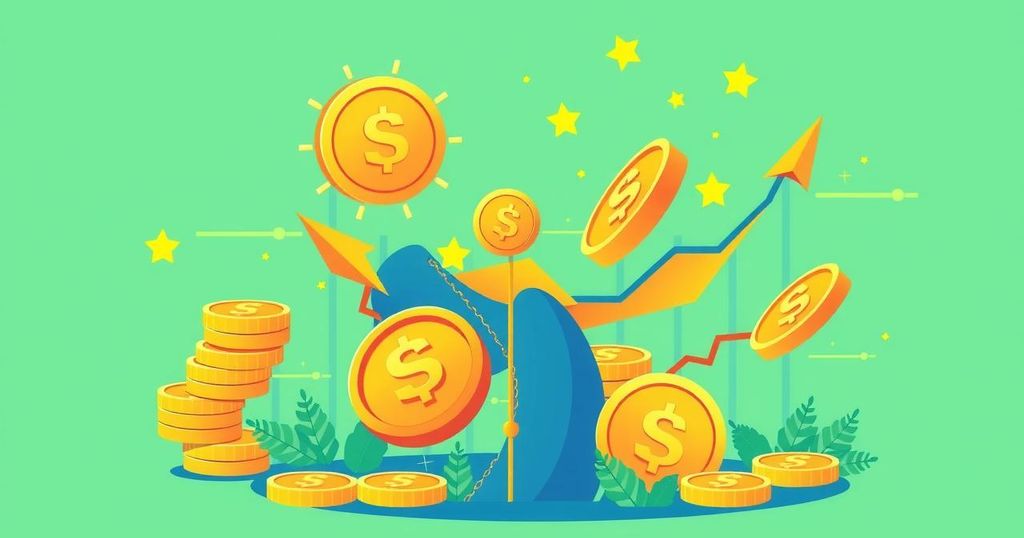Guyana’s $200,000 Cash Grant: Benefits and Long-term Challenges

President Irfaan Ali has introduced a $200,000 cash grant for every household in Guyana amid significant economic growth from the oil sector. While providing immediate relief, the proposal highlights concerns regarding long-term economic stability and equitable wealth distribution. The article reflects on the cash grant’s implications, placing it within the context of Universal Basic Income and broader economic strategies to address inequality.
President Irfaan Ali has announced a significant initiative, providing a one-off cash grant of $200,000 to every household in Guyana. This announcement coincides with unprecedented economic growth spurred by the country’s burgeoning oil sector. This measure aims to deliver immediate financial relief to households amidst rapid economic changes; however, it prompts questions about the long-term stability and sustainability of such financial approaches, particularly within a Universal Basic Income (UBI) framework.
As Guyana navigates the implications of its oil-driven transformation, it faces the pressing question of inclusive wealth distribution. The key challenge remains ensuring that the benefits of the country’s oil wealth reach all citizens rather than a privileged few. In examining the cash grant policy, it is essential to discuss its compatibility with genuine UBI initiatives and explore alternative strategies to combat economic disparity.
This analysis reflects various perspectives on economic inequality, gleaned from expert discussions in the publication “Transforming Guyana,” alongside insights from recent commentary. These discussions encourage a deeper look into the effectiveness of the cash grant as part of a broader economic strategy aimed at fostering long-term equity and social well-being.
In conclusion, while the $200,000 cash grant represents a commendable effort by the Guyanese government to provide immediate financial support to families, it also signifies the need to consider sustainable and equitable economic strategies moving forward. The discourse surrounding Universal Basic Income and alternative approaches emphasizes the importance of ensuring that the wealth derived from oil enriches all citizens, thereby fostering a more inclusive economic landscape.
Original Source: basicincome.org








